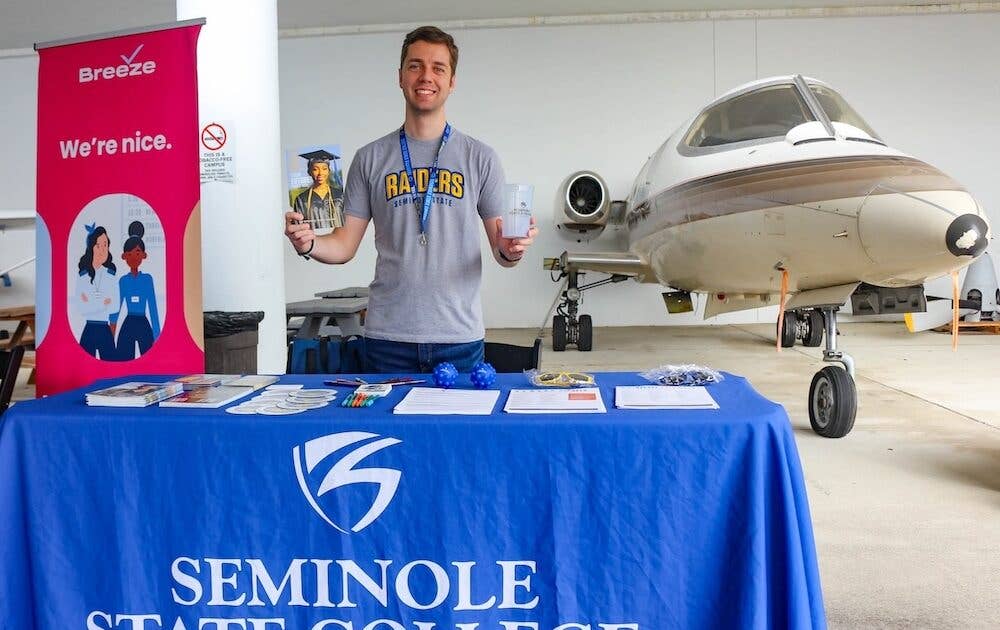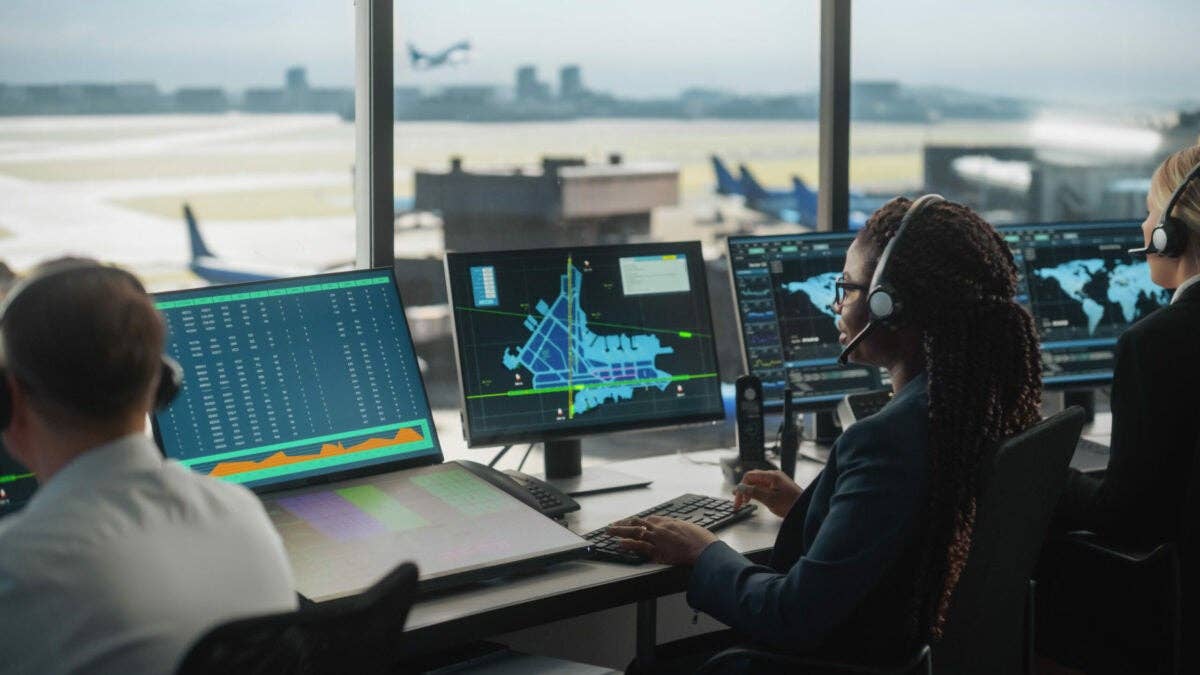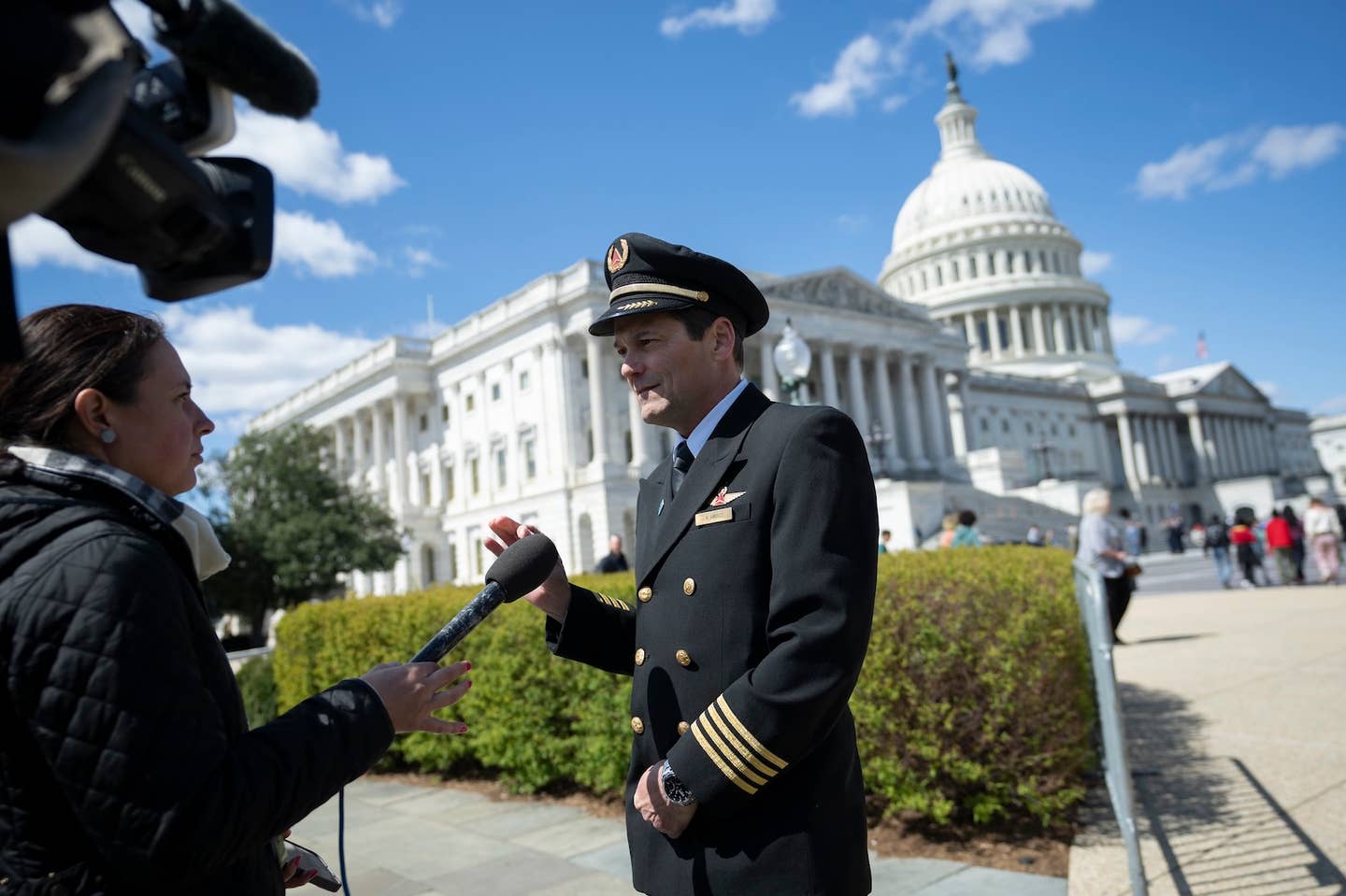Seeing Yourself In the Left Seat
American Airlines Captain Beth Powell describes her career path to the majors and why representation matters.

Captain Beth Powell has been flying for the American Airlines family for 22 years and was the first Black woman to become a pilot manager at the airline. (Courtesy: American Airlines)
For most career pilots, aviation is more than a vocation—it is a passion. It certainly is for Captain Beth Powell, also known by her Instagram handle LadyAV8rBeth. Powell has been flying within the American Airlines family for 22 years and became the airline's first Black woman pilot manager at the airline. She spent 14 years at American Eagle, the regional airline, with four years as a captain on the ATR and Embraer, before coming to American Airlines. She now flies left seat on the Boeing 737. She estimates she has more than 7,000 hours logged.
According to Powell, it was a passion for numbers that led to her career in aviation. She grew up in Jamaica, and a high school teacher pointed out that she had a talent.
"I loved every subject (in school) pertaining to numbers," she told FLYING. "It was math, it was physics, it was accounting—if it had numbers I would do it. I remember the teachers being fascinated every time they would put a question on the board, and we had to solve for the answer, and somehow I always found another formula—and still got the correct answer."
The teacher was impressed and pointed out all the potential careers that made use of math skills.
"The teacher listed them off and I heard ‘pilot’ first," she says. "and I rushed home to my parents and said mummy, daddy—the teacher says I could become a pilot."
According to Powell, her parents were intrigued—but as they knew nothing of aviation, they had to do research. Her mother grabbed the Yellow Pages and looked up flight schools—that led Powell to Wings Jamaica, where she took an intro flight at the age of 15 and completed her private pilot certificate. She then moved to the U.S. to finish her initial training at FlightSafety International.
"It was in a Cessna 152, and I felt every movement. It was liking being a bird," says Powell of her intro flight.
After the flight, the instructor, seeing her joy, informed her, "If you're a pilot you get paid to do this."
Her parents were supportive of her interest, but also concerned. The question they both asked: Do women fly? The owner of the flight school replied in the affirmative, and noted that his wife was a pilot.
After graduating from high school at 16, Powell enrolled in flight school in Vero Beach, Florida. Her parents took out a loan to finance her education.
"I broke their pockets," she recalls. "I soloed at the age of 16, earned my private certificate at 17, and earned my instrument [rating] and commercial certificates, then the money ran out."
Powell knew she would need to build her hours to become a professional pilot, so she worked multiple jobs to pay for her instructor certificates.
"I tutored people in math, I worked at a car insurance company, and promoted Jamaican parties I was too young to partake in," she says. The hard work paid off, and she earned her instructor certificates. "I was a flight instructor for two and a half years, then I got on with American Eagle at age 21."
Powell says she was aware that there were very few minorities at the airlines, especially when she began her career more than 20 years ago. She soon realized that seeing someone like her—a Black woman—might just inspire other Black women to apply at the airlines, saying, "When we see it out there we realize there is a pathway for us."
"When people talk about representation, I hear ‘belonging.’ When you see someone that looks like you (at that job), you see yourself and know that you can do it too. Diversity at the table is more than color or gender, it is also thoughts and ideas and decision-making," she says.
When asked what she likes best about her job, Powell is quick to answer "The takeoffs and landings because of the intricate details we have to review before and the details we have to know when going to different airports." She notes the crews often challenge each other to see who can do the best landings.
When asked what she dislikes about the job, she came up empty, saying she enjoys every aspect of it, especially the airline lifestyle that gives crews the opportunity to immerse themselves in local culture wherever they go.
There is a misconception about how much pilots work, she says. "People think we are gone (from home) all the time. That is not so. The junior pilots have 12 days off a month, the senior pilots 18 days off. Compare that to someone working a 9-5 job. They have just eight days off a month."
Social Media Maven
Powell shares the joy she finds in aviation through her Instagram handle LadyAv8rBeth. She shares her experiences and offers suggestions to wanna-be aviators to help them launch their careers. Don't be afraid to network, she says, as networking builds connections and leads to finding mentors or becoming a mentor and finding lifelong friends.
Powell often does this through Sisters of the Skies, an organization of Black female pilots. Working with the group has helped her step out of her comfort zone and talk to more people at different aviation events.
On August 8, 2023, Powell was part of the flight to mark the 100th anniversary of the career of aviatrix Bessie Coleman, who is recognized as both the first African-American woman and first Native American to hold a pilot certificate. The flight went from Dallas to Phoenix.
"It was super emotional," Powell says, noting the flight could not have taken place without the support of American Airlines. "From ground to cockpit it was all Black females on the flight."
When FLYING caught up with Powell she was preparing to travel to Long Beach, California, for the Women in Aviation Conference where she plans to share her expertise as part of the airlines panel.
Powell has a 17-year-old daughter, and notes that's made her keen on providing guidance to the next generation of aviation enthusiasts. Her advice to the future: figure out who you are, and what your passions are, set goals and "Dream big! As big as you can!"

Sign-up for newsletters & special offers!
Get the latest FLYING stories & special offers delivered directly to your inbox






